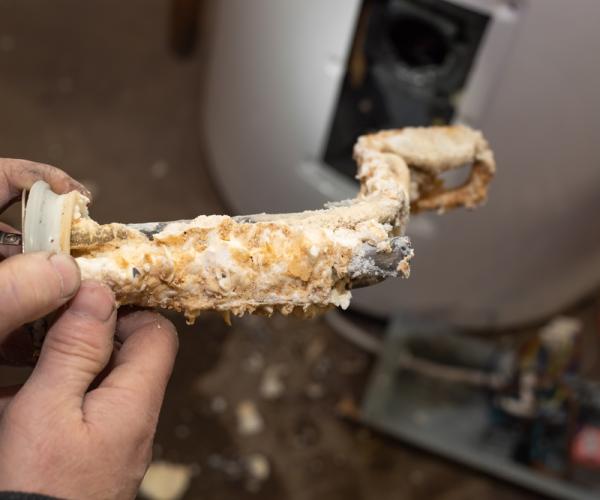
In many European countries, hard water is a major problem and, in a lot of areas of the UK, it is no different. Hard water contains high levels of minerals, including calcium and magnesium. These minerals can build up in your pipes, fixtures, and appliances, causing them to wear out more quickly. They can also cause your skin and hair to become dry and brittle.
Water softeners are designed to remove these minerals from your water, preventing the hard water problems before they start.
Water softeners work by exchanging the calcium and magnesium in hard water for sodium or potassium ions. This process is called ion exchange. The sodium or potassium ions do not stick to surfaces like calcium and magnesium ions do, so they will not cause the same problems that hard water does.
Ion exchange occurs in a tank filled with small beads of resin. As hard water passes through the tank, the calcium and magnesium ions stick to the beads of resin. The sodium or potassium ions are then released into the water. Over time, the beads of resin become full of calcium and magnesium ions and need to be replaced.
Water softeners typically need to be replaced every 5-10 years. The cost of replacement tanks varies depending on the size and type of water softener you have. However, the benefits of having a water softener far outweigh the cost of replacement tanks.
If you live in the UK is a hard water area, a water softener is a necessity for protecting your plumbing fixtures and extending their life span. Water softeners also save you money on soap and detergent by preventing mineral buildup on fixture surfaces. Finally, softened water can improve the quality of your skin and hair by preventing mineral buildup that can strip away natural oils essential for healthy skin and hair.